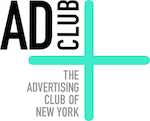The Uncertain Future of Gen Z: Advice for Brands Navigating Economic Crises
From Julia Cramer, Content Specialist, Adomni
Synopsis: Find out how today’s brands can use DOOH to remain resilient and strategically advertise to Gen Z in an era of uncertainty.
Born after 1996, Generation Z or Gen-Zers are becoming one of the most significant cohorts of global and digital consumers and the most racially and ethnically diverse generation. Researchers and economists believed this new generation would acquire a strong economy with all-time low unemployment rates. That all changed at the end of 2019 when the pandemic threw a curveball at the nation's economic, social, and political climate, leading the younger generation to navigate an unpredictable future. There is a strong likelihood that Generation Z may face another 'once-in-a-lifetime' economic recession at the start of their working lives, similar to Millenials. These unforeseen economic downturns can make lasting impressions on young minds.
Brands need to stay ahead of the curve, finding ways to strategically advertise to this socially conscious wave of Americans in an era of uncertainty. Perhaps looking back at how brands responded throughout the Great Recession provides some clarity for future advertisers while taking a look through the Gen Z lens to find how to spark their short attention span in a down economy. Let’s examine how resilient brands responded to previous financial crises and how these strategies can be combined with digital out-of-home (DOOH) to advertise to Zoomers effectively:
Resilience through Core Values
Most businesses in the 2008 recession that upheld their brand story, actions, and behaviors remained resilient during unprecedented times. The best way to maintain a clear and brand-driven voice is to invest in brand-building tactics. Notably, Gen Z values authenticity and quality in brands, with 82% saying they trust a company more if it uses images of real customers in its advertising, and 72% said they're more likely to buy from a company that contributes to social causes. Losing sight of the brand's voice, especially to the generation with $360 billion in spending power, could prove irreparable to a company in the long term. And this is not old news.
Let's take a look at Mcdonald's. The world's largest fast-food chain decided to buckle down and restrategize its energy on its brand-building pillars. These campaigns served to create an emotional connection with their customers, highlighting consumers’ favorite foods and concentrating on trust. McDonald's saw more remarkable sales growth in 2008 than in the previous two years, opening up more than 500 stores alone. 
Refocusing efforts on what made a business unique and valuable in the first place can reinvigorate the brand messaging and rebuild consumer loyalty. McDonald’s found their brand pillars one of the reasons for repeat purchases and why customers kept an ongoing emotional relationship with the fast-food chain.
Embracing Innovation
There is a very reasonable temptation to cut spending and halt innovation in a time of crisis. Sony cut 8,000 jobs worldwide and closed several factories to preserve spending, damaging their long-term reputation, and growing steam. On the other hand, two giant companies forming during the Great Recession, Warby Parker and Netflix, saw a massive gap in the marketplace and decided to respond swiftly. Without fear, they powered through the recession, coming out more resilient on the other side.
Its imperative brands find a direct route and meet shifting consumer expectations when an economic downturn arises. And it’s no surprise that Gen Z are actively seeking out innovative experience. According to Salesforce, 55% of Gen Z are open to trying new brands, and 76% favor the transformation to digital. To combat the ever changing market demands and consumer mindset, brands need to deliver innovative experiences to Generation Z customers.
Performance Branding + Innovation = DOOH!
Performance branding is an innovative strategy that integrates brand and performance marketing, forcing advertisers to rethink their marketing strategy using purpose-driven goals while measuring performance. Out-of-home advertising provides unparalleled brand awareness. By leveraging real-time data and insights, programmatic digital out-of-home allows you to respond to changing customer trends, adjust campaign parameters, or manage spending in order to deliver optimal performance. Through mobile location tracking and interactive screens, DOOH enables advertisers to analyze and readjust their marketing campaigns to increase their KPIs and drive more sales at a lower cost.
Programmatic digital out-of-home (DOOH), stemmed from traditional out-of-home advertising, delivers performance branding for modern-day advertisers, with the scale, reach, and measurable digital screens - proven to attract Gen-Zers. The zoomers, being raised in a world filled with screens, have an average attention span of fewer than 8 seconds and utilize techniques to circumvent ads. Combining new technologies and larger-than-life screens captivates their short attention to make DOOH an unskippable part of your marketing campaign - even in a down economy.
The customers of tomorrow have an increasing appetite for social justice, climate action and many other social issues. They use their wallets not only for consumption but also as a voice for their beliefs. Brands have to utilize not only creative, well-thought-out marketing campaigns to captivate this generation but also find the best medium to reach them. A generation inundated by an endless stream of content calls for larger-than-life, interactive displays that exceed the imagination. Not to mention, programmatically delivered, future-proof digital out-of-home advertising joins the forces of brand building and performance marketing that appeals to the younger generation. There is a need for brands to be responsive and stay ahead of the competition in preparation for a recession. DOOH is the answer; risk-free, reliable, and transparent advertising that is sure to reach consumers without appearing invasive.
